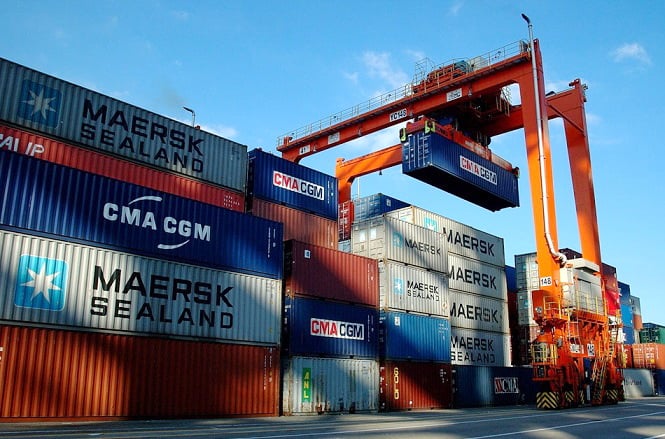The Ghana Revenue Authority (GRA) has launched a transformative online duty payment system, allowing importers to settle their customs obligations weeks before their goods arrive at the port. This significant reform marks a crucial step towards modernizing trade practices and streamlining customs procedures in Ghana, aiming to enhance efficiency, transparency, and convenience for importers. Commissioner-General Anthony Kwasi Sarpong emphasized that this initiative aligns with the government’s 24-hour economy policy for ports, designed to stimulate trade, propel industrialization, and bolster revenue generation. This innovative system promises to significantly reduce delays and bottlenecks at the port, contributing to a more seamless and competitive trading environment.
This pre-arrival duty payment system grants importers the flexibility to estimate and settle their customs duties up to two weeks in advance of their goods arriving at the port. This feature eliminates the need for importers to physically visit the port for payment, offering the convenience of transacting from their homes or offices. The only remaining step in the clearance process is the physical examination and release of goods. This shift towards digitalization not only saves time and resources for businesses but also minimizes human interaction, reducing opportunities for corruption and bureaucratic inefficiencies. By empowering importers to proactively manage their customs obligations, the GRA is fostering a more predictable and efficient trade environment.
The 24-hour port operation, now fully implemented at Tema Port, complements the online duty payment system. While Customs operations have historically been round-the-clock, other relevant agencies previously operated on limited schedules, creating disparities in service availability. The GRA’s successful integration of all agencies onto a unified digital platform, forming a single trade window, has effectively synchronized operations across the board. This ensures seamless coordination between all stakeholders involved in the clearance process, enabling goods to be cleared at any time of day or night. This enhancement significantly reduces dwell times for cargo, further optimizing the flow of goods through the port and minimizing storage costs for importers.
The inclusion of shipping lines and banks in this integrated system further enhances the efficiency and effectiveness of the new port operations. Their integration allows for seamless data exchange and real-time updates on cargo movements and financial transactions, contributing to a more synchronized and transparent clearance process. This collaborative approach between government agencies, shipping lines, and financial institutions ensures that all parties are operating on the same platform, minimizing communication gaps and facilitating faster processing of import documentation. The streamlined flow of information and payments through the integrated system creates a more predictable and reliable environment for international trade.
While acknowledging the possibility of teething problems as with any major system overhaul, Mr. Sarpong expressed confidence in the efficacy of both the online duty payment system and the 24-hour port operations. He highlighted the successful implementation of these initiatives, emphasizing their potential to revolutionize trade practices in Ghana. The GRA anticipates that the initial challenges will be overcome as users familiarize themselves with the new systems and processes. Continued monitoring and evaluation will be essential to identify and address any emerging issues, ensuring the long-term success and sustainability of these reforms.
In conclusion, the introduction of online duty payment and the full implementation of 24-hour port operations represent significant milestones in Ghana’s efforts to modernize its trade infrastructure. These reforms promise to significantly streamline customs procedures, reduce trade costs, and enhance the competitiveness of Ghanaian businesses in the global marketplace. By embracing digitalization and fostering inter-agency collaboration, the GRA is paving the way for a more efficient, transparent, and predictable trade environment, ultimately contributing to economic growth and development in Ghana. These improvements are expected to attract more foreign investment, boost exports, and solidify Ghana’s position as a key trading hub in West Africa.














